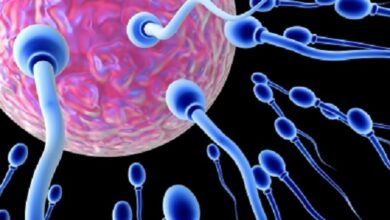Difference between anorexia and anorexia nervosa Similarities and FAQs
Anorexia and anorexia nervosa
In this article we will provide you the difference between anorexia and anorexia nervosa Similarities and FAQs.
What does anorexia mean?
anorexia _It is a serious eating disorder that mainly affects young women. It is characterized by excessive weight loss, the obsession with weight control and the irrational fear of gaining it, as well as an alteration in the perception of their body image. The disorder is usually triggered when an individual is concerned about how she looks or feels about her body; to combat this feeling, they begin to limit what they eat and exercise excessively. In many cases, patients lose so much weight that their internal organs fail due to severe nutritional deficit caused by inadequate consumption of calories or essential nutrients. Treatment includes cognitive-behavioral and pharmacological therapy along with mutual support among people with anorexia to achieve successful outcomes in recovery.
Enhance your reading: Difference between dandruff and nits Similarities and FAQs
What does anorexia nervosa mean?
Anorexia nervosa is a severe and chronic eating disorder characterized by an intense fear of gaining weight, a negative body image, and a pathological refusal to maintain body weight within limits considered healthy. It is associated with changes in eating behavior, eating little or not eating at all; it also involves serious emotional and even physical problems. Symptoms include paying too much attention to one’s weight and physical appearance, using laxatives, diuretics, or other medications to control your weight; feeling guilty after eating; fainting repeatedly; chronic constipation and extreme hair loss. Anorexia has profound consequences for mental and physical health if proper treatment is not received.
Similarities
These words are similar in that they refer to an eating disorder. In both cases, patients experience a compulsive desire to eat less or not eat at all. Physical symptoms can include low body weight, extreme fatigue, digestive problems, and malnutrition. Furthermore, both anorexia and anorexia nervosa are often associated with negative emotions such as anxiety or deep depression. Treatment for both conditions consists primarily of Cognitive Behavioral Therapy (CBT) along with healthy dietary modifications to help the individual fully recover from their symptoms and achieve optimal mental and physical balance.
Differences
Anorexia is a condition that is characterized by a lack of appetite or aversion towards food. This can be the result of a variety of circumstances, from cultural biases to emotional issues. Anorexia Nervosa , on the other hand, is a serious and life-threatening eating disorder. It is characterized by having low body weight caused by the intentional limitation of food intake, with frequent amenorrhea and intense fear of gaining weight. Symptoms include excessive feelings of shame, guilt, or self-hatred associated with extreme eating disorders.
Frequent questions
What is anorexia and what causes it?
Anorexia is an eating disorder characterized by intentional weight loss, fear of gaining weight, and changes in body perception. It is mainly caused by factors such as social pressure to have a slim figure, emotional or family problems, low self-esteem or dissatisfaction with your body image.
What is involuntary anorexia?
Involuntary anorexia is a disorder characterized by a lack of appetite or the desire to eat, which leads to a significant drop in body weight. Symptoms include fatigue, weakness, muscle loss, and anemia. The most common cause of this disease is underlying thyroid or hormonal disorders, but it can also be caused by chronic infections or emotional problems. Treatment depends on the diagnosis and usually involves medication to correct nutritional deficiencies and even therapy to address underlying emotional issues.
What is the best treatment for anorexia?
The best treatment for anorexia depends on each person. Doctors and mental health professionals generally recommend a comprehensive approach that includes therapy, medication, nutritional support, and education on healthy eating. The goal is to help people with anorexia restore healthy body weight, develop normal eating habits, and achieve a positive attitude about the body and body image.
What is anorexia nervosa?
Anorexia nervosa is a serious eating disorder characterized by excessive preoccupation with food and weight, leading the person to significantly limit their food intake. This can lead to severe physical and emotional complications.
What is the difference between anorexia nervosa and anorexia?
Anorexia nervosa is a serious eating disorder characterized by a fear of gaining weight, a misperception of one’s own body, and restrictive behaviors around food. Anorexia, on the other hand, simply describes behavior related to inadequate food intake.
What disease causes anorexia nervosa?
It is an eating disorder that causes excessive weight loss. People with anorexia have a fear of gaining weight, which makes them feel compelled to severely limit their food intake and not eat properly. Behavioral symptoms associated with anorexia include obsessive preoccupation with weight and fitness, restrictive or extreme diets, excessive physical inactivity, and mental rigidity in relation to food.
What types of anorexia nervosa are there?
There are two main types of anorexia nervosa: restrictive and purgative. Restrictive anorexia is the most common eating disorder, in which people limit the amount of food they eat to control their weight. On the other hand, purgative anorexia involves inappropriate compensatory behaviors such as excessive fasting or self-induced vomiting to avoid gaining weight.




